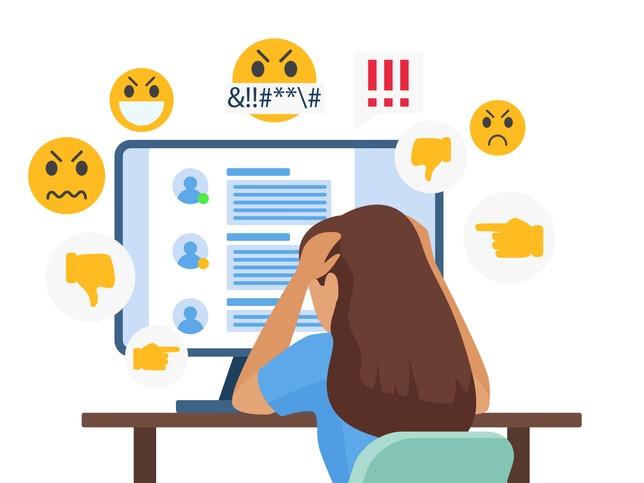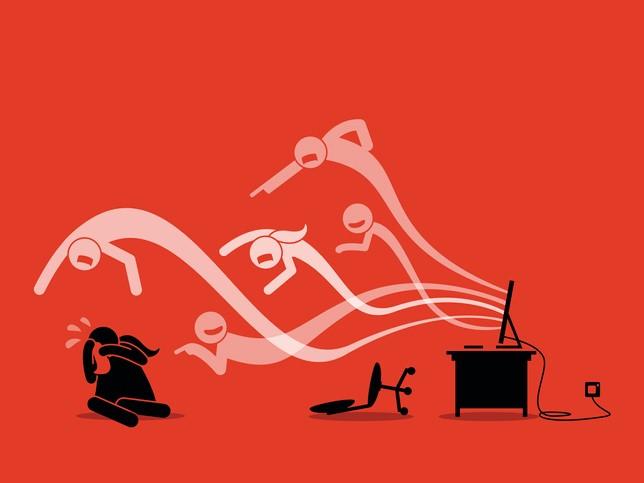
If universities push staff towards social media, they must protect them, too
At the very least, there should be training on managing online discourse, blocking tools and recognising when ‘robust debate’ becomes abuse or libel, says Andy Phippen
Research management
Sponsored by
Elsevier helps researchers and healthcare professionals advance science and improve health outcomes for the benefit of society.

It seems that, at the moment, not a day passes without some mention of “online harms” – the potential upset or very real harm that can result from abuse received via online platforms. It’s clear that the government is investing time and faith in the development of the, currently draft, online safety bill (sometimes referred to as the online harms bill) in order to reduce the likelihood of harm online, for both children and adults.
Alongside this emerging legislation, the Law Commission recently produced recommendations for specific legislation around harmful online communication, including practices such as cyber-flashing and instigating “pile ons” – where a group of individuals all send abusive communications to an individual online.
Regardless of the eventual legislation, it’s clear that online abuse and its resultant harms are becoming an increasing concern for the UK’s lawmakers.
With the increased interest in research impact, predominantly because of its higher prominence in the research excellence framework, there is a view that we should break out of our ivory towers and the sanctity of peer review and present our work to the wider world.
One means of doing so is, of course, social media. Though it is undoubtedly a strange beast. Personally, I’m not convinced that we, as academics, gain much from engaging in a discussion of our work with someone from “the university of life” who posits that: “You’re talking bollocks, mate.”
- Do EDI kitemarks help protect female researchers from online abuse?
- Broccoli and birdsong: the shifty discourse of ‘staff well-being’
- How to prevent cyberbullying from rearing its ugly head in universities
Of course, there are certainly some academics with a public online presence who make use of social media extremely successfully. Indeed, I’m friends with some. However, of those I know who are successful in their social media presence, in most cases it is their choice to engage with social media.
Over the past couple of years, though, I’ve spoken to an increasing number of academics who feel pressure from their institutions to be more visible online, particularly early career researchers who need to “get your work out there” to raise profile or bump up citations.
So, if institutions are the instigators of exposure to what can be a brutal online world, do we agree they have a responsibility towards those they expose?
This should not be something suggested to academics in an appraisal or an hour-long “social media workshop” by the marketing department’s social media manager. Social media managers, in my experience, have themselves received little training beyond social media marketing 101. They are very unlikely to be knowledgeable about the legislation around online abuse, how risk might be mitigated or how an institution can, and should, step in to support an academic who is exposed to a pile on.
There seems to be a dearth of effective training and articulation of the risks that might be associated with a higher-profile online presence. This often comes alongside an assumption that personal use of social media can transfer effectively into a more professional setting – or, even worse, the accursed “digital natives” narrative, as if younger academics have some innate ability to mitigate risk online as a result of being born after a certain date.
In my discussions with universities, the focus of institutions appears to lie in the development of policies or guidance to remind staff of professional behaviour online and how to not bring the institution into disrepute. This is certainly a reasonable expectation – and one I usually advise should be defined in a simple policy, rather than guidelines, so it can be applied consistently. There is certainly a need for the community to recognise the importance of being a responsible end user and the limits of freedom of expression.
However, more specifically, if institutions are encouraging academics to promote their work (and by proxy their institution) on social media, they should at least have some form of risk management and policy such that, in the event of abuse, an academic knows how to disclose it to their organisation and what support they would expect to receive.
At the very least, I would expect any institution that does encourage this form of public exposure to provide training alongside it around managing online discourse, the tools available on platforms to mute and block, and how to recognise when “robust debate” spills over into abuse or libel. Universities cannot simply assume we’ve assimilated this knowledge through personal use of social media – it’s very much something that needs to be delivered via effective training (and by “effective”, I don’t mean an online video followed by a multiple-choice quiz).
Staff must know who they can turn to for specific support should they have questions regarding online incidents and expect to receive a supportive, professional response. Those providing that support should be knowledgeable and trained in the legalities around online abuse and freedom of expression. If staff are being encouraged to put themselves online, an institution cannot throw their hands up and say: “Well, you shouldn’t have said that. It’s your social media profile, not ours.”
Duty of care needs to extend to a level where academics can expect to be supported by their institution, and this should include the engagement of legal services should someone be libelled, or police in the event of abuse.
While most online altercations tend to die down quite quickly, some do not, and academics should not be expected to endure abuse on their own – particularly if the institution encouraged them to place themselves in this position of risk in the first place.
Andy Phippen is professor of digital rights at Bournemouth University. He does not post on social media.
Research management
Sponsored by


